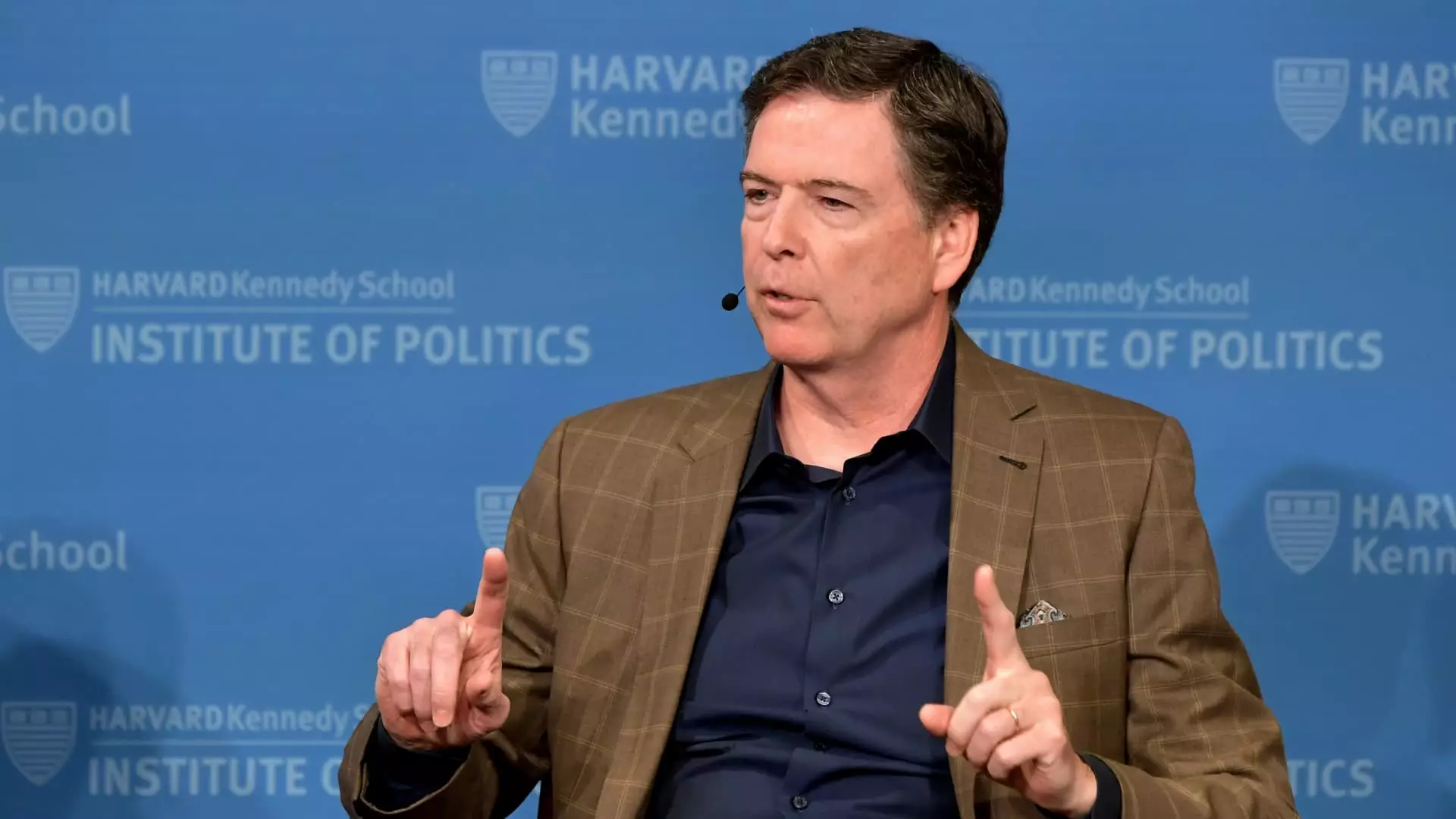In a political climate rife with tension and outrage, few incidents can ignite a firestorm quite like the one stirred by former FBI Director James Comey recently. Following a seemingly innocuous post on Instagram, Comey found himself at the center of a tempest that included accusations of advocating for violence against President Donald Trump. The core of the controversy erupted over a photo that he claimed illustrated a “shell formation” on a beach, which fortuitously formed the numbers “8647.” While Comey intended to convey a casual remark about nature, this apparently innocent post quickly morphed into a narrative that the ex-FBI director was issuing a coded message for Trump’s assassination. The hyperbole and sensationalism running rampant among Republican lawmakers and administration officials is nothing short of astonishing.
Analyzing the Miscommunication
The immediate backlash following Comey’s post was brutally swift. Homeland Security Secretary Kristi Noem led the charge, declaring on social media that Comey had promoted a call for the assassination of the President. Such assertions not only reflect a worrying escalation of partisan politics but also highlight how easily nuanced communication can be misconstrued within a fraught context. “Eighty-six,” a word that can suggest dismissing something or someone, swiftly transformed into an incendiary accusation when misapplied in a political context. The fragility of communication in today’s hyper-polarized media landscape should concern anyone who values the integrity of national dialogue.
It is critical to observe that Comey himself clarified his intentions, claiming that he never meant to incite violence and was taken aback that the numbers could be interpreted in such a manner. “I am opposed to violence in all circumstances,” he stated, emphasizing his disdain for violence. His prompt deletion of the post was an effort to quell any misinterpretation, yet the ramifications of a thoughtless moment had already spiraled out of control, leading to fervent calls for his prosecution from various Republican figures, including representatives and even former Trump campaign officials.
Political Paranoia and Its Consequences
This incident exemplifies a significant ailment in contemporary politics: a decidedly paranoid overreaction to dissenting voices. The accusation that Comey, a figure already maligned in conservative circles since his time with the FBI, engaged in a public call for violence against the sitting President appears more like a desperate maneuver to rally followers rather than a sane interpretation of his words. These kinds of accusations can serve to silence critics and stifle debate, and we witness an all-too-familiar pattern where those in power leverage public outrage to distract from substantive issues.
As fears loom large over threats to national security and political stability, easily summonable outrage over trivial matters can impede meaningful political discourse. Beyond the spectacle of miscommunication, this dynamic poses profound difficulties for the future of a democratic society. When the stakes of public dialogue devolve into a frenzy over seemingly innocuous expressions, we risk undermining the principles of freedom of expression and accountability.
The Emotional Escalation in Modern Politics
The emotional intensity surrounding the incident underscores the often-histrionic nature of contemporary American politics. Contributions from Donald Trump Jr., who equated his father’s presidency to a call for murder, serve to amplify an overwhelming sense of grievance that permeates the political atmosphere. It’s as if the gravity of truth is increasingly eclipsed by the weight of emotional manipulation. This emotionally charged rhetoric only serves to fuel polarization, as factions line up against one another rather than engage in productive dialogue.
Comey’s past and the entrenched animosity toward him create fertile ground for mutual distrust, making even accidental missteps incredibly consequential. Critics often morph into caricatures of their former selves, positioned as enemies even when the perceived transgressions are inconsequential. The irony is palpable: in their fervor to protect the presidency, these figures may inadvertently contribute to a culture of censorship and persecution that ultimately undermines the democratic values they profess to uphold.
In the grand scheme, the fallout from Comey’s post reflects not merely a misunderstanding but a systemic deterioration of civil discourse, wherein the over-interpretation of statements feeds a relentless cycle of antagonism. If there ever existed a moment to reassess the landscape of American political dialogue, this incident may serve as that unfortunate catalyst. The cavalier presumption of guilt in an age marked by distrust demands a reevaluation of our commitment to open dialogue and the ability to navigate disagreement without spiraling into delusion.

